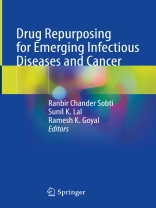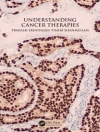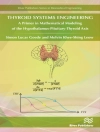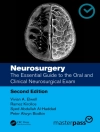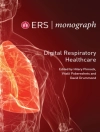This book presents drug repurposing strategies to combat infectious diseases and cancer. It discusses key experimental and in silico approaches for modern drug repositioning, including signature matching, molecular docking, genome-wide associated studies, and network-based approaches aided by artificial intelligence. Further, the book presents various computational and experimental strategies for better understanding disease mechanisms and identify repurposed drug candidates for personalized pharmacotherapy. It also explores the databases for drug repositioning, summarizes the approaches taken for drug repositioning, and highlights and compares their characteristics and challenges. Towards the end, the book discusses challenges and limitations encountered in computational drug repositioning.
Table des matières
Chapter 1. Drug repurposing: an advance way to traditional drug discovery.- Chapter 2. Drug polypharmacology towards drug repurposing.- Chapter 3. Pharmacovigilance based drug repurposing.- Chapter 4. In silico analysis of cellular interactors of pqbp1 for potential drug repurposing.- Chapter 5. Drug repurposing opportunities in cancer.- Chapter 6. Repurposing of flavonoids as promising phytochemicals for the treatment of lung carcinoma.- Chapter 7. Targeted therapies used in the treatment of non-small cell lung cancer: an overvie.- Chapter 8. Targeting the ubiquitin machinery for cancer therapeutics.- Chapter 9. Repurposing of serotonin pathway influencing drugs for potential cancer therapy and antimicrobial functions.- Chapter 10. Drug repurposing for hematological malignancies.- Chapter 11. Drug repurposing for ent and head and neck infectious and oncologic diseases: current practices and future possibilities.- Chapter 12. Repurposing of immun-modulators for the treatment of cancer with qsar approaches.- Chapter 13. Reverse translational approach in repurposing of drugs for anticancer therapy.- Chapter 14. Therapeutic targeting of antineoplastic drugs in alzheimer’s disease: discovered in repurposed agents.- Chapter 15. Repurposing of drugs for the treatment of microbial diseases.- Chapter 16. Repurposing anti-inflammatory agents in the potential treatment of sars-cov-2 infection.- Chapter 17. Repurposing drugs for viruses and cancer: a novel drug repositioning strategy for covid-19.- Chapter 18. Repurposing of serotonin pathway influencing drugs for potential cancer therapy and antimicrobial functions.- Chapter 19. Drug repurposing for covid-19 therapy: pipeline, current status and challenges.- chapter 20. Deoxy-d-glucose – a repurposed drug for covid-19 treatment.- Chapter 21. Repurposing methylene blue for the management of covid-19: prospects, paradox and perspective.- Chapter 22. Drug repurposing in covid-19 and cancer: how far have we come?.- Chapter 23.Repurposing of doxycycline to attenuate influenza virus pathogenesis via inhibition of matrix metalloproteinases in neutrophils.- Chapter 24. Therapeutic repurposing approach: new opportunity for developing drugs against covid‑19.- chapter 25. Repurposing drugs for viruses and cancer: a novel drug repositioning strategy for covid-19.- Chapter 26. Repurposing of therapeutic approaches for the treatment of vitiligo.- Chapter 27. Emerging infections and their management.- Chapter 28. Repurposing of minocycline, a tetracycline antibiotic, for neurodegenerative disorders.
A propos de l’auteur
Dr Ranbir Chander Sobti, former Vice-Chancellor Panjab University, Chandigarh & Babasaheb Bhimrao Ambedkar University (Central University), Lucknow and former Education Advisor to the Governor of Bihar is a scientist, an able administrator and dynamic institution builder.
Starting his career as a Cytogeneticist, he moved on to molecular biology including genomics to understand the susceptibility and disease process of cancer, COPD, AIDS, metabolic syndrome and kidney diseases. He has also used Stem Cells and nanoparticles to follow the process of tissue organ development through designed decellularization protocol. Earlier he had worked on the cytogenetics and molecular genetics of various animal groups including humans as well as molecular toxicology of agricultural pollutants using in vitro and in vivo protocols.
He has published more than 350 papers in the journals of national and repute such as Mutation Research, Carcinogenesis. Archives of Toxicology, Cancer Genetics and Cytogenetics, Molecular Cell Biochemistry, PLOS I to name a few. more than 50 books by international publishers such as Springers, Academic Press, CRC, Elsevier, and others.
He is a Fellow of the Third World Academy of Sciences, National Academy of Sciences India, Indian National Science Academy, National Academy of Medical Sciences, National Academy of Agricultural Sciences Canadian Academy of Cardiovascular Diseases and few others. He was the General President of Indian Science Congress Association for the 102nd session held at University of Jammu in 2013. He is the recipient of many prestigious awards like, the INSA Young Scientist Medal, UGC Career Award, Punjab Rattan Award, JC Bose Oration and Sriram Oration Awards and of Life Time Achievement Awards of the Punjab Academy of Sciences, Zoological Society of India, and the Environment Academy of India, besides many other medals and awards of national and International levels. He was awarded Padmashri , the third highest civilian award by the Government of India in 2009 for his contributions to the cause of Education. He has chaired /delivered lectures at the national and international conferences/symposia/workshops.
Dr. Sobti, an active researcher, is also steadfastly committed to the popularization of science in the community through popular lectures and community engagement programs.
Dr Sunil Lal is a Ph D from the Georgia Institute of Technology, Atlanta, USA in Microbial Genetics (1989) following which he joined the faculty at California Institute of Technology, Pasadena (1994). Following this, Prof. Lal joined the ICGEB (International Center for Genetic Engineering and Biotechnology) of the United Nations at New Delhi, India where he served as an International Research Scientist for 21 years. In 2014 Prof Lal joined the School of Science, Monash University, Malaysia where he is currently a Professor of Microbiology and leads an active research group on Systems Virology. Prof. Sunil is internationally well known for his research work in the field of RNA viruses including SARS Coronaviruses, Influenza A virus and Hepatitis E virus. He has been a visiting scientist to Universiti Malaysia Sarawak, National University of Singapore, Karolinska Institute and the Centers for Disease Control (CDC) Atlanta. Prof. Sunil has won many prestigious international awards including the Hind Rattan (highest civilian honor from Govt. of India), and has been the regional representative for the American Society for Microbiology for 9 years besides being an Elected Fellow of the National Academy of Sciences (India). Prof. Sunil is on the editorial board of International Journals and is actively involved in peer-reviewing for some of the top-tier scientific journals. Prof. Sunil has over 200 publications in top international scientific journals and has published four international books on emerging viral diseases.
Professor Ramesh K. Goyal, is the Vice Chancellor of, Delhi Pharmaceutical Sciences and Research University, New Delhi. He was earlier the Vice-Chancellor of the Maharaja Sayajirao University of Baroda, Executive Director (Research & strategies) at V Clin Bio Labs., Sri Ramachandra Medical Center University, Chennai, Director (Pharmacology and Clinical Research) at NMIMS University, Mumbai; Director ISF College of Pharmacy, Moga, Punjab and Professor at L. M. College of Pharmacy, Ahmedabad. He has been the Visiting Scientist and Visiting professor at the University of British Columbia, Vancouver, BC and Institute of Cardiovascular Sciences, Winnipeg, Canada. In 2019 he was conferred with the Honorary Professorship at Stavropol State Medical University, Russia and recently appointed as the Distinguished Professor at USCI University, Kula Lumpur, Malaysia. His research interest is development of newer drugs for cardiovascular and metabolic disorders through phyto-pharmaceuticals. Recently he has come up with an herbal formulation specifically targeting ACE-2 of SARC-Co V-2 virus. Dr Goyal got three patents awarded, 6 under consideration, 42 books and book chapters, over 350 full papers articles published in National and International journals. He is the recipient of 74 National & International Awards. He is the Fellow of eight professional bodies (FIPS, FIACS, FAMS, FIC, FICN, FNASc. FSCH, FIVSPT). He has been chairman/member of prestigious national and international bodies.
